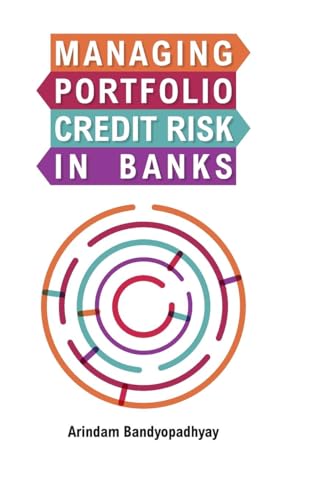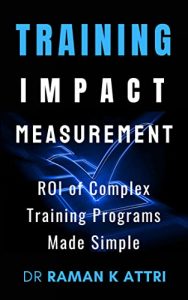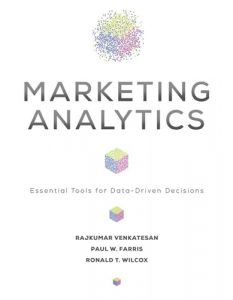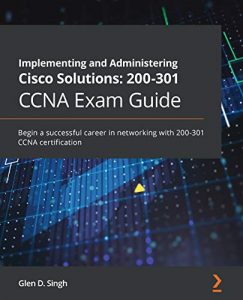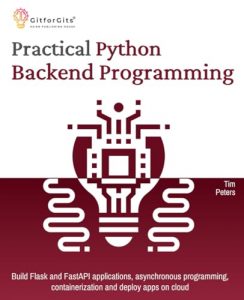1. Managing Portfolio Credit Risk in Banks
Authored by Arindam Bandyopadhyay, this book delves deeply into the complexities of managing credit risk within banking portfolios. It is an essential read for financial professionals looking to strengthen their expertise in risk assessment and mitigation strategies. By leveraging practical examples and a clear, methodical approach, the author provides insights into creating sustainable risk management frameworks. This book also accentuates the evolving regulations that banks must navigate, enabling readers to grasp both foundational and advanced concepts.

2. Deep Credit Risk: Machine Learning in R
For those who wish to harness data science in finance, “Deep Credit Risk” by Harald Scheule and Daniel Rösch is a groundbreaking resource. This book provides readers with a comprehensive guide to using machine learning methodologies to assess credit risk. By blending theoretical insights with practical R coding examples, this book is perfect for analysts keen on applying innovative technologies in risk evaluation, ultimately offering a pathway to more sophisticated credit modeling techniques.

3. Credit Risk Modeling: Theory and Applications
David Lando’s “Credit Risk Modeling” is a seminal work that takes an academic yet practical lens on credit risk analysis. Ideal for advanced students and practitioners, this book articulates both the diverse theoretical frameworks and their practical applications, rendering it a go-to reference for risk professionals. Readers will find extensive discussions on default prediction models and migration matrices, paired with real-world applications, which simplifies complex concepts into workable tools for credit risk management.

4. Rating Based Modeling of Credit Risk
This insightful book by Stefan Trueck and Svetlozar T. Rachev emphasizes the use of rating-based models in evaluating credit risk. It is an essential text for those exploring the practical applications of migration matrices. This work provides a unique synthesis of theory and application, making it not just informative but also pragmatic, as it guides readers through designing their credit assessment frameworks using proven models.

5. Foundations of Banking Risk
Published by GARP, this book offers a concise overview of banking concepts, risks, and regulations. At just $2.66, it’s an excellent primer for newcomers to the field. It elucidates fundamental principles behind banking risks, aiding readers in understanding the broader regulatory environment affecting today’s financial landscape. This book serves as a crucial stepping stone for further exploration into complex risk management topics.

6. Credit Secrets: The Best Tricks And Secrets To Repair Your Credit
“Credit Secrets” by Tony Risk offers practical advice designed to empower individuals to take control of their credit scores and finances. This accessible guide offers effective strategies combined with actionable steps that readers can implement immediately. Perfect for those who want to pursue better credit management, it provides a wealth of tips that can dramatically improve one’s financial standing.

7. First Step of Credit Risk Management
Authored by CA Ram Sarikh, this book is an excellent introduction to credit underwriting and risk management. Designed for beginners in the financial sector, it provides easy-to-understand concepts, making it a fantastic starting point for anyone wanting to grasp the basics before diving into more complex materials. It lays the groundwork necessary to build a solid understanding of credit risk management.

8. Risk Management and Financial Institutions
John C. Hull’s book sheds light on the intricate relationship between risk management and the functioning of financial institutions. First published in 2023, it stays current with contemporary discussions and practices in risk management. Readers gain valuable insight into how financial institutions operate amidst various risks, thus increasing their comprehension of systemic issues within the financial system.

9. Fundamentals of Credit and Credit Analysis
This enlightening work by Arnold Ziegel and Ronna Ziegel stands out for its focus on corporate credit analysis. It equips readers with the principles of credit determination, evaluation, and management. By providing clear insights into the nuances of corporate credit, it is an indispensable guide for anyone working in or studying corporate finance.

10. Trade and Receivables Finance
Written by Stephen A. Jones, this practical guide focuses on trade finance, particularly the evaluation of credit risks associated with receivables. This book promises to enhance your understanding of structuring financial transactions and managing associated risks effectively. For professionals navigating the complexities of trade finance, it serves as an invaluable resource to mastering credit risk evaluation.


